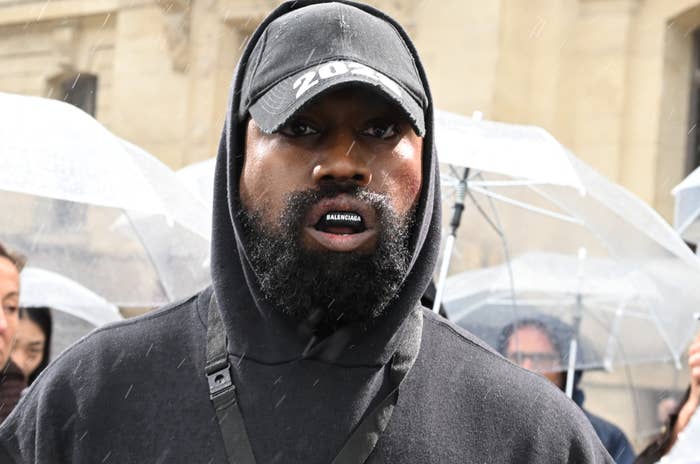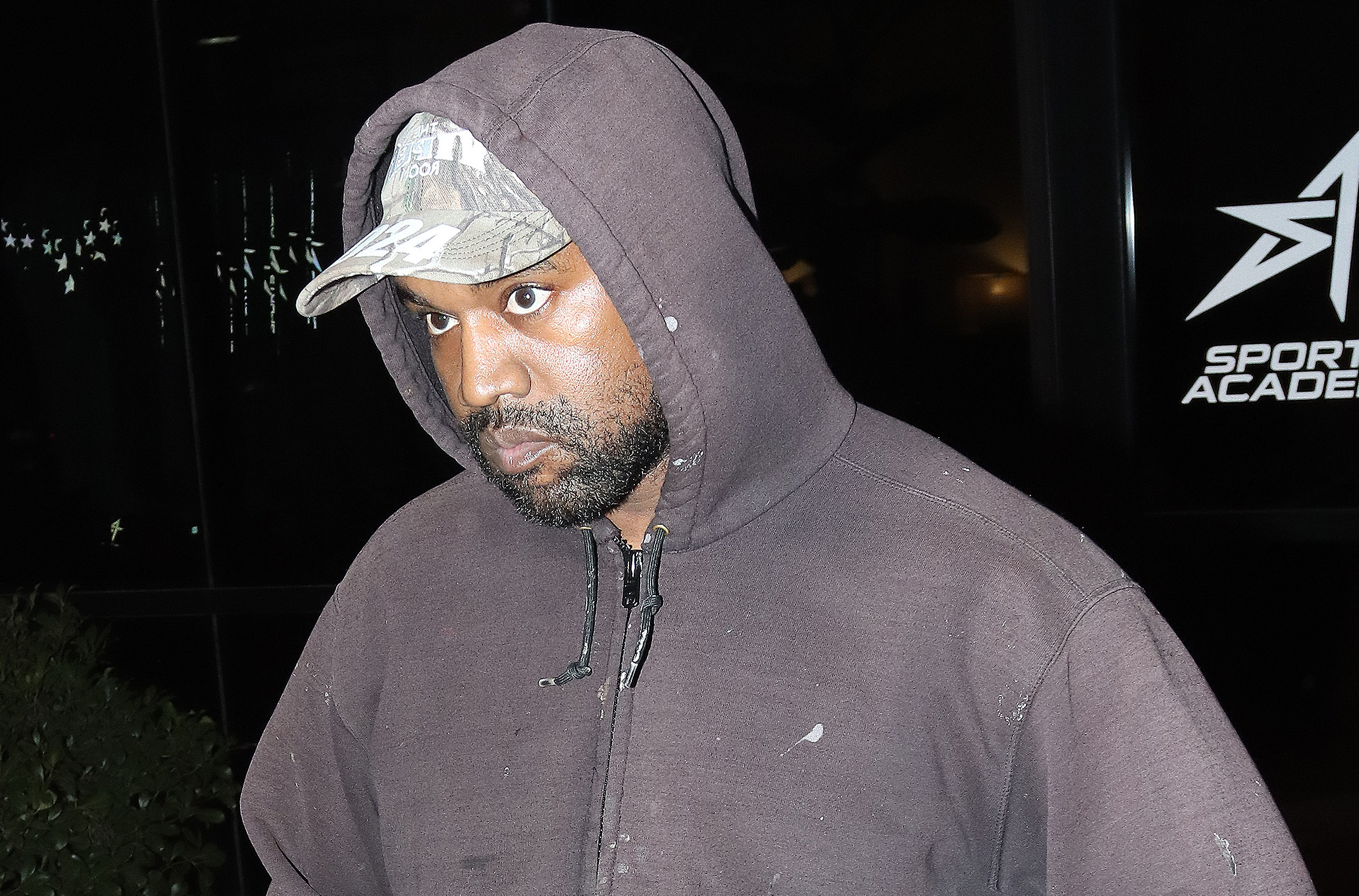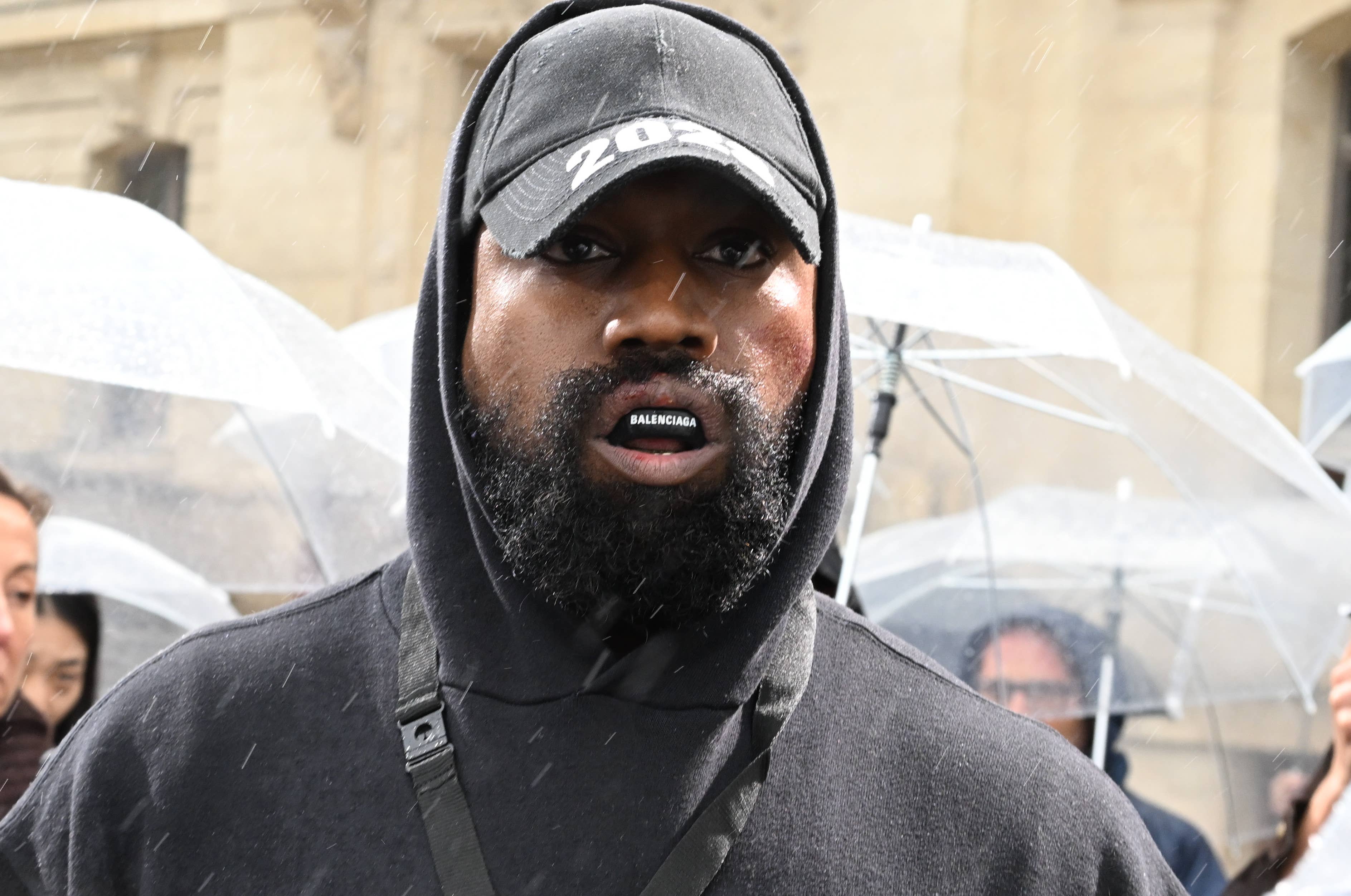
Are Kanye West’s actions worth studying in college? Yassin Alsalman, a professor and longtime Ye fan, believes so.
Alsalman, commonly known as rapper Narcy, is currently teaching a college course called “Kanye vs. Ye: Genius by Design” at Concordia University in Montreal. He was hoping to excite young students by diving deeper into the influence that Ye has had on the culture. “Ye’s journey and narrative touched and touch on colonialism, capitalism, race studies, social science, media studies, design, and fashion,” Alsalman told Complex via email. “His impact on youth culture and multiple generations is undeniable, and his public moments represent a lot of larger issues.”
Whether we realize it or not, we all have studied Ye, formerly known as Kanye West. He’s been at the center of pop culture since the early 2000s. Alsalman previously spoke to Complex for our 20th-anniversary issue where we examined the multi-hyphenate’s impact on pop culture and he spoke on Ye’s commitment to challenging the status quo. “Kanye’s biggest contribution to culture is his ability to challenge the status quo of America while wanting to be the status quo at the same time,” Alsalman said. Because of that, longtime Ye fans are no strangers to controversy. Since the start of his career, Ye has used his platform and his voice to speak out on various issues he felt strongly about. From his gripes with award shows to George W. Bush and Hurricane Katrina, the rapper has never shied away from speaking his mind—no matter the criticism or consequences that followed.
But now Ye has hit yet another controversial point in his career. In less than a month, he’s appeared on Drink Champs, Piers Morgan Uncensored, Tucker Carlson Tonight, and Cuomo, where he made controversial comments regarding the death of George Floyd and anti-Semitic remarks about the Jewish community.
He was also temporarily restricted on Instagram and Twitter for hate speech and tweeting he would go “death con 3 on Jewish people.” His anti-Semitic remarks caused a domino effect for him and his businesses like never before. While the Floyd comments led to a pending lawsuit, his anti-Semitic comments have alienated a portion of his fanbase while also causing companies and celebrities, including Kim and Khloé Kardashian, to take a public stand denouncing anti-Semitism. Other celebrities like Jessica Seinfeld, Jerry Seinfeld’s wife, took it a step further creating petitions asking Adidas to end its partnership with the rapper; the company later did. Other companies like Balenciaga, Gap, Foot Locker, Peloton, and TJ Maxx also distanced themselves from the rapper, announcing that they were cutting ties with Ye and his Yeezy brand.
While Alsalman acknowledges how painful and disappointing Ye’s recent messaging has been, he believes the media is also to blame. “In the current climate of the world, we should be looking to have constructive conversations around change and lead with love,” Alsalman explains. “I also question the intention of Tucker Carlson and [Chris] Cuomo. Why would you even take this opportunity besides them being an opportunity? They don’t care about Ye or about the communities affected by any of his statements over the last couple of years.”
“We are not having the conversation about celebrity and industry and the dangers of both on our society and children,” he added. “We place too much emphasis on famous people and entertainment to discern the difference between the consumption of it and the aftereffects. We need to start having a conversation about idolatry, mass marketing, and how it’s affecting our youth.”
Ye has since shared a form of an apology to “the Jewish people that I hurt.” Still, his streaming numbers have reportedly taken a hit, and Forbes estimates that his net worth dropped from over a billion to $400 million in the aftermath. So is the damage done irreparable? Complex reached out to Alsalman as someone who has followed Ye’s career intensely and he shared his thoughts on where Ye’s recent remarks leave him, why companies are severing ties with the rapper now, as well as the status of his Concordia University course.
Why did you decide to create this course and why do you think is Ye worth being studied?
Returning to in-class studies post-pandemic, I felt it important to ground the studies I present in my class vis-a-vis an artist’s journey. Ye’s journey and narrative touched and touch on colonialism, capitalism, race studies, social science, media studies, design, and fashion. His impact on youth culture and multiple generations is undeniable, and his public moments represent a lot of larger issues. Next semester, for example, I am focusing on Kendrick’s work. I think situating hip-hop studies within present-day artists does a great service to both the artists’ work, the public narrative, and the youth in class. It’s a living breathing educational model.
The course started this fall, so far how has it resonated with students?
It’s been an incredible, enriching experience. Centering Marshall McLuhan, Frantz Fanon, Edward Said, Angela Davis, etc., it’s been incredible. This is either the worst or best time to teach this class, but I think it’s the latter. These conversations are important to have with youth in real time—to situate their media experience and have them unload the download in real time.
Will you continue to teach the course in light of the recent statements? Have you been covering the latest news during the course? How has that been?
That is up to the university, but I like the idea of doing a “pop-up” model where we don’t revisit the same artist, and switch up analysis based on different people. I wouldn’t not teach it because of what he’s done publicly. People still study dictators and wars even though they are shameful moments in human history. Every story is important in the framework of our hip-hop experience. I titled this class “Kanye vs. Ye” before he disassociated himself from his old public persona, so it’s also an examination of the different phases we have witnessed, the easy ones and the difficult ones.
You previously said Ye is challenging the confines of being a Black man in America. Do you think that still applies?
I wouldn’t be able to articulate this properly, as I am an Arab man. I would be doing a great disservice to the Black experience if I imposed my own personal opinion. I think any Black man’s experience in the United States of America is challenging the confines of what the country imposes on the community since the inception of the country.

Companies haven’t cut ties with Ye previously when he sided with President Trump, when he said “slavery was a choice,” and even recently with the “White Lives Matter” shirts and comments about George Floyd. Why are they severing ties now?
Corporations are an extension of the capitalist system, which is an extension of the colonial setting of society. In all, they continue the hierarchy that has existed from the beginning of time. Racialized acceptance and public outcries of support, on a mass level, do not come from these moments. They come from real hearts changing, en masse, which is extremely hard to achieve. These companies don’t care about Black people more than they care about the Black or brown spending power, and that’s the bottom line. Diversity in media serves the dollar, not the community. Until deeply rooted communities build their own infrastructures to compete with the mass media, there will never be change. You can’t expect a tank to stop in its tracks and become a freedom train. It’s time to think of ways of operating outside of these machines.
Do you remember when the world was at war with Muslims? I recall those days vividly. And in that, they called us radicalized, generalized us, pushed us into prisons, made people disappear, and killed a million people in Iraq. And the system got away with it. The world forgot us. Now that we are seeing the rise of white supremacy and radicalized Anglo-Saxon power everywhere, what is the world doing about it? And ask yourself, why is that? We are entering a new phase, which is directly attached to the reasons the world went to war with Black and brown people around the world. This is what happens when you raise a generation to watch the genocide and pillaging of other nations, you make it OK for hatred to be emboldened. We have a lot of work to do. For now, we must stand with all oppressed people in the world—those who are not in power—hand to hand, and stand against injustice that is prevalent in government and industry. For our children.
In your opinion, does it feel like this is rock bottom for Ye? Do you think he can bounce back from it?
Time will tell.

